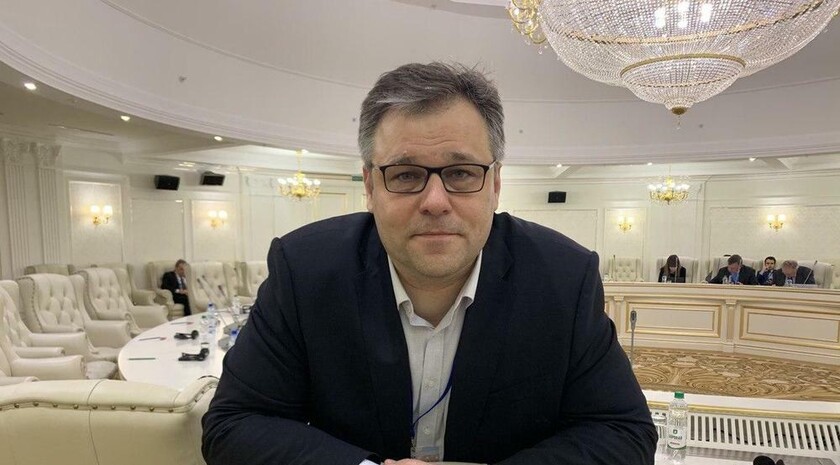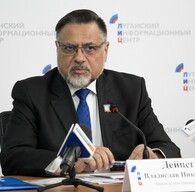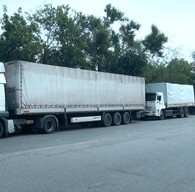Kiev has derailed the Contact Group political subgroup discussion of the Road Map for a peaceful settlement of the Donbass conflict, Lugansk People’s Republic representative in the working group on political issues Rodion Miroshnik said in his Telegram channel.
“The session of the Minsk talks political subgroup ended an hour early,” Miroshnik said.
”Coordinator for the OSCE Sylvie Bermann stated that the dialogue had been stopped as one of the parties in the person of Mr (Kiev’s representative in the working group on political issues Andrey) Kostin refused to hold a discussion.”
“The Ukrainian representative repeatedly and in many ways tried to draw the dialogue away from the discussion of the Road Map,” Miroshnk said.
He would talk about the documents that make up the package of the Minsk agreements, the Steinmeier formula and why the Road Map was the only urgent topic for discussion. When he was driven to the point where he needed to discuss precisely the Road Map and its provisions designated by the coordinator, the Ukrainian negotiator lost his drive, the Republic’s representative said.
He said that “in actual fact, nothing new has happened, it’s only what we’re becoming clear on Ukraine’s aspirations.”
“Kiev purposefully moves towards dismantling any formats for reaching accords and implementing them. The JCCC (Joint Centre for Control and Coordination), following the abduction of an LPR representative, has become problematic in terms of the safety of its participants, the dialogue is openly blocked on most Minsk talks tracks, and the “Normandy format” is only begged for by (Ukrainian President Vladimir) Zelensky in order to get his pictures taken ‘in the circle of the great ones,’” Miroshnik said.
“The Tuesday negotiations began to the accompaniment of strikes delivered by Ukrainian armed formations on the contact line, which resulted in damage to houses and infrastructure,” he said.
“It’s a clear mark; as soon as the array of the political and diplomatic means has been exhausted, the conflict will begin to escalate. It seems that Kiev aims precisely at this,” the LPR representative said.
In early October 2020, LPR and DPR representatives submitted a Road Map for consideration by the Contact Group. It was a step-by-step plan for comprehensive peaceful settlements in Donbass based on the Minsk Agreements. Following numerous attempts to avoid the work on the document, Kiev brought forward its own “Plan of Joint Steps” in early November. The Ukrainian proposals had not been coordinated in the Contact Group and reflected Kiev’s position which contradicted the Minsk Agreements.
The Ukrainian government launched the so-called anti-terrorist operation against Donbass in April 2014. Conflict settlement relies on the Package of Measures for the Implementation of the Minsk Agreements, signed on February 12, 2015 in the Belarussian capital by the Contact Group members and coordinated by the Normandy Four heads of states (Russia, Germany, France and Ukraine). The UN Security Council approved the document by Resolution No 2202 of February 17, 2015 and called upon the parties to ensure its implementation.
The document provides for comprehensive ceasefire, withdrawal of all heavy weapons from the contact line, starting a dialog on reconstruction of social and economic ties between Kiev and Donbass. It also envisages carrying out constitutional reform in Ukraine providing for decentralization and adopting permanent legislation on a special status of certain areas of the Donetsk and Lugansk regions.
To facilitate the work of the Contact Group, four working groups were set up under its aegis to deal with issues of security, politics, return of internally displaced people and refuges, as well as with social, humanitarian, economic and rehabilitation issues. *i*s



